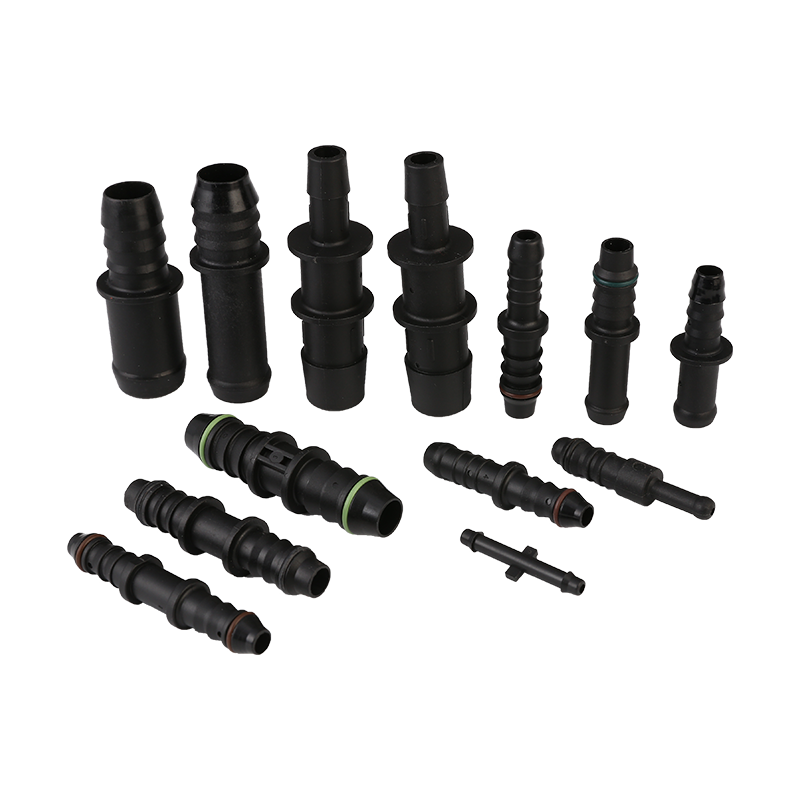How Automotive Fuel Pipe Fittings Contribute To Fuel Efficiency And Emission Control
Automotive Fuel Line Connectors Pipe Fittings Producer Price
Automotive fuel pipe fittings play a crucial role in ensuring a vehicle operates efficiently and adheres to environmental standards. As integral components of the fuel delivery system, these fittings connect various fuel system parts, enabling a controlled flow of fuel from the tank to the engine. The way these automotive fuel pipe fittings are designed and maintained directly influences both fuel efficiency and emissions, making them vital in modern automotive engineering.
The design and material selection of automotive fuel pipe fittings are key factors in determining their efficiency. Fuel pipe fittings that are poorly designed or made from inferior materials can advance to fuel leaks or irregular fuel flow. This can significantly impact fuel efficiency as the engine may receive less fuel than required or operate inefficiently. By ensuring that automotive fuel pipe fittings are made from durable, corrosion-resistant materials, manufacturers can enhance the reliability of the fuel system, thereby improving fuel efficiency.
Another significant aspect of automotive fuel pipe fittings is their role in maintaining the integrity of the entire fuel system. A tight, secure connection is essential to prevent fuel loss, which would otherwise advance to wasted energy. Automotive fuel pipe fittings that are designed with precision help create a seal that ensures no fuel is lost during transit. This not only helps in reducing fuel consumption but also contributes to less the overall environmental impact by preventing unburned fuel from being released into the atmosphere.
The maintenance and regular inspection of automotive fuel pipe fittings also have a major impact on fuel efficiency. Over time, automotive fuel pipe fittings can become worn out or damaged due to factors such as exposure to heat, pressure, and road conditions. When these fittings are compromised, fuel leakage or improper fuel flow can occur, pilot to reduced engine performance. Regular checks of automotive fuel pipe fittings ensure that they are in good condition and function as intended. This is particularly important for keeping the vehicle's fuel system working efficiently and piloting to improve fuel economy.
Moreover, automotive fuel pipe fittings are essential in reducing vehicle emissions. A well-functioning fuel system ensures that the right amount of fuel is delivered to the engine for combustion, reducing the chances of incomplete combustion. Incomplete combustion results in the emission of harmful gases such as carbon monoxide and hydrocarbons, which contribute to air pollution. Properly designed and maintained automotive fuel pipe fittings ensure the good fuel flow necessary for complete combustion, thus reducing harmful emissions and contributing to environmental sustainability.
In modern vehicles, automotive fuel pipe fittings also play a role in helping to meet strict emission standards set by regulatory bodies. By ensuring that the fuel system operates without leaks and delivers fuel efficiently to the engine, automotive fuel pipe fittings contribute to the overall reduction in emissions, helping manufacturers comply with environmental regulations. The ability to less fuel waste and reduce emissions through these fittings supports the automotive industry's efforts to develop more eco-friendly vehicles.
The development of advanced automotive fuel pipe fittings has also led to improvements in the way fuel systems manage pressure and temperature. These fittings must be able to withstand high pressure and temperature fluctuations, particularly in systems using newer fuels or alternative energy sources. Automotive fuel pipe fittings designed with advanced technologies are better equipped to handle these challenges, further enhancing fuel efficiency and emission control.
Furthermore, the compatibility of automotive fuel pipe fittings with various fuel types is a growing consideration. As vehicles transition to alternative fuels, such as ethanol or compressed natural gas, automotive fuel pipe fittings must be adaptable to these new fuel sources. The right materials and design choices allow for the safe and efficient transportation of these fuels, contributing to both improved fuel efficiency and reduced environmental impact.
In conclusion, automotive fuel pipe fittings are vital components in maintaining both fuel efficiency and emission control in vehicles. Their role in ensuring proper fuel flow, preventing leaks, and enabling the safe delivery of fuel to the engine cannot be overstated. By focusing on the design, material choice, and maintenance of automotive fuel pipe fittings, manufacturers can enhance vehicle performance, reduce fuel consumption, and less harmful emissions. As the automotive industry continues to evolve, automotive fuel pipe fittings will remain a key element in the pursuit of more efficient and environmentally friendly vehicles.

 English
English
 Español
Español



.png)










